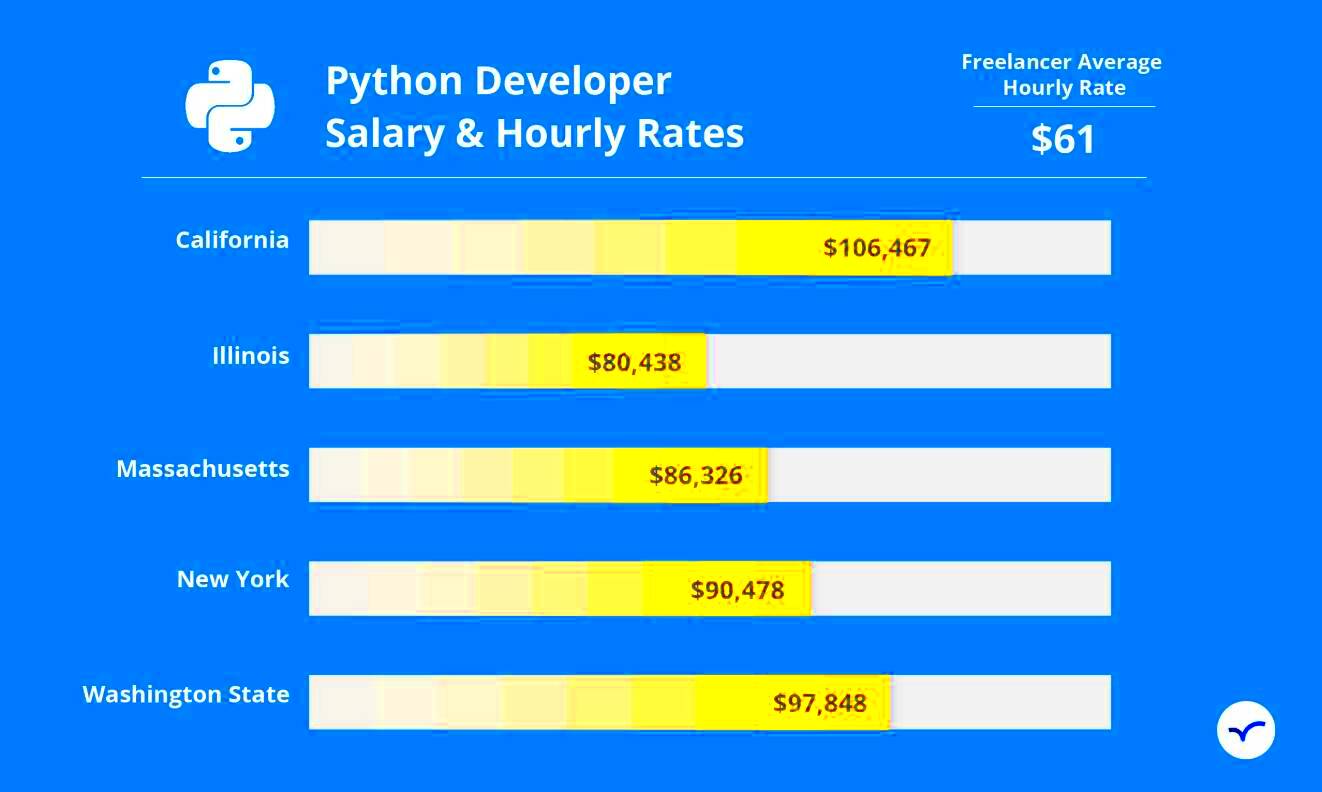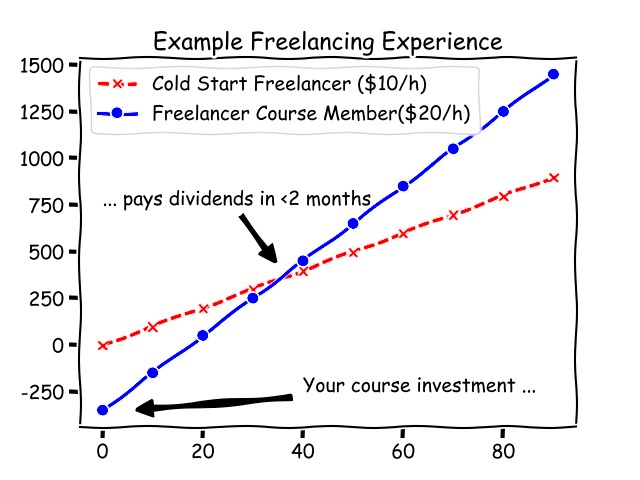Python freelancing is a great way to use your programming skills while enjoying the flexibility of working on your own terms. Many businesses and individuals need Python developers to help them with various projects, from web development to data analysis. As a freelancer, you can choose projects that interest you and set your own schedule. This career path allows you to expand your skills, build your network, and potentially earn a lucrative income.
Skills Needed to Succeed as a Python Freelancer

To thrive as a Python freelancer, you need a solid foundation in programming as well as some specialized skills. Here are some important skills to consider:
- Proficiency in Python: Understand the core concepts and libraries.
- Web Development: Familiarity with frameworks like Django or Flask.
- Data Analysis: Skills in libraries such as Pandas and NumPy.
- Machine Learning: Knowledge of libraries like TensorFlow or scikit-learn can be a plus.
- Version Control: Understanding Git for managing your code.
- Problem-Solving: Strong analytical skills to tackle coding challenges.
In addition to technical skills, communication and project management skills are crucial. You need to convey ideas clearly and manage your time effectively to meet deadlines.
Also Read This: How to Promote Your Gig on Fiverr: A Comprehensive Guide
Finding Freelance Python Jobs

Finding freelance jobs as a Python developer may seem daunting at first, but there are many resources available to help you get started. Here are some effective strategies:
- Online Job Platforms: Websites like Upwork, Freelancer, and Fiverr are great places to find Python projects. You can create a profile, showcase your skills, and bid on projects that interest you.
- Networking: Attend tech meetups, webinars, and conferences to meet potential clients and other freelancers. Building relationships in the industry can lead to job referrals.
- Social Media: Use platforms like LinkedIn to connect with companies looking for Python developers. Join groups related to Python freelancing for more opportunities.
- Personal Website: Create a portfolio site to showcase your work. Include projects, testimonials, and contact information. A strong online presence can attract clients.
- Cold Pitching: Identify companies that may benefit from your skills and send them personalized proposals. Highlight how you can solve their specific problems.
By combining these strategies, you can increase your chances of landing freelance Python jobs that match your skills and interests.
Also Read This: Where to Download Fiverr Gig Video Template Free
Setting Your Rates as a Python Freelancer

Setting the right rates as a Python freelancer is crucial for your success. If you charge too little, you may struggle to make a decent income, while charging too much could scare away potential clients. The key is to find a balance that reflects your skills, experience, and the market demand. Here are some tips to help you determine your rates:
- Research Market Rates: Look at what other freelancers in your area are charging. Websites like Upwork and Freelancer often display average rates for different skill levels.
- Consider Your Experience: If you're just starting out, you might want to set lower rates to attract clients. As you gain experience and build a reputation, you can gradually increase your rates.
- Assess Project Complexity: More complex projects may warrant higher rates. Factor in the time and effort required to complete them.
- Value-Based Pricing: Consider the value you bring to a project. If your work can significantly impact a client’s bottom line, you can justify charging more.
- Hourly vs. Project Rates: Decide whether you want to charge by the hour or by the project. Hourly rates can provide flexibility, while project rates give clients a clear cost upfront.
Regularly reviewing your rates is also important. As you gain more skills and experience, don’t hesitate to raise your rates to reflect your growth.
Also Read This: How to Register on Fiverr as a Nigerian
Factors That Affect Earnings for Python Freelancers
Your earnings as a Python freelancer can vary based on several factors. Understanding these factors will help you strategize for better income. Here are some key elements to consider:
- Experience Level: More experienced freelancers typically command higher rates. Clients are willing to pay more for proven expertise.
- Specialization: If you specialize in a niche area like machine learning or web development, you can often charge more due to the demand for those skills.
- Project Type: The type of projects you take on can influence your earnings. Long-term contracts or high-stakes projects usually pay better than short gigs.
- Client Budget: Understanding your clients' budgets can help you tailor your proposals. Some clients may have limited funds, while others are willing to pay premium rates.
- Location: While freelancing allows you to work from anywhere, clients in different regions may have different budget expectations. Be aware of the market in your target area.
By considering these factors and adapting your approach, you can maximize your earning potential as a Python freelancer.
Also Read This: How to Find Customers on Fiverr
Building a Strong Portfolio as a Python Freelancer
A strong portfolio is essential for attracting clients and showcasing your skills as a Python freelancer. Your portfolio acts as your calling card, demonstrating what you can do. Here are some tips to help you build an impressive portfolio:
- Select Relevant Projects: Include a variety of projects that highlight your skills. Focus on those that are relevant to the type of work you want to pursue.
- Showcase Results: When possible, demonstrate the impact of your work. Use metrics or client testimonials to show how your contributions helped the project.
- Document Your Process: Include details about your problem-solving approach. Clients appreciate seeing how you tackle challenges and the thought process behind your work.
- Keep it Updated: Regularly refresh your portfolio with new projects. This shows potential clients that you are active and continuously developing your skills.
- Make it Visually Appealing: Ensure your portfolio is easy to navigate and visually attractive. Use a clean layout, and consider using screenshots or code snippets to illustrate your work.
Finally, share your portfolio on social media and professional networks to reach a wider audience. A well-crafted portfolio can significantly enhance your chances of landing freelance jobs.
Also Read This: How to Get People to Buy on Fiverr
Networking and Marketing Yourself
Networking and marketing are vital aspects of building a successful freelance career in Python development. By connecting with others in your field and promoting your skills, you can open doors to new opportunities. Here are some effective ways to network and market yourself:
- Attend Industry Events: Participate in conferences, meetups, and workshops related to Python and technology. These events are great for meeting potential clients and fellow freelancers.
- Join Online Communities: Engage in forums, social media groups, and platforms like Reddit or Stack Overflow. Sharing your knowledge and helping others can establish your reputation.
- Utilize LinkedIn: Create a professional LinkedIn profile that showcases your skills and projects. Connect with industry professionals and join relevant groups to expand your network.
- Create Valuable Content: Start a blog or YouTube channel where you share tutorials, insights, or experiences related to Python development. This can attract attention and showcase your expertise.
- Offer Free Workshops or Webinars: Share your knowledge with others through free sessions. This not only helps others but also positions you as an authority in your field.
Marketing yourself effectively involves being proactive and consistently building relationships. The more you connect with others and share your expertise, the more opportunities you'll create for yourself.
Also Read This: How to Change Your IP for Fiverr and Nairaland
FAQ about Python Freelancing
As a Python freelancer, you may have questions about the industry and how to succeed. Here are some frequently asked questions that can provide helpful insights:
- What skills do I need to start freelancing in Python? You need a strong grasp of Python programming, along with skills in web development or data analysis, depending on your focus area.
- How do I find clients as a freelance Python developer? Utilize job platforms like Upwork or Fiverr, network through social media, and attend industry events to find clients.
- What should I charge for my services? Research market rates and consider your experience level, project complexity, and the value you bring when setting your rates.
- Is freelancing a stable career choice? While freelancing can be uncertain, building a strong client base and diversifying your projects can lead to a stable income.
- How can I improve my freelance career over time? Keep learning, update your skills, maintain a strong portfolio, and consistently network to find new opportunities.
These FAQs cover some common concerns and can guide you as you embark on your freelance journey.
Conclusion
Becoming a successful Python freelancer involves understanding the industry, honing your skills, and effectively marketing yourself. By setting competitive rates, considering factors that impact your earnings, and building a strong portfolio, you can position yourself for success. Networking is equally important, as it helps you connect with potential clients and fellow professionals.
As you navigate the freelance landscape, remember to stay adaptable and keep learning. The demand for Python developers continues to grow, offering plenty of opportunities for those willing to put in the effort. With the right strategies in place, you can build a fulfilling and rewarding freelance career.




